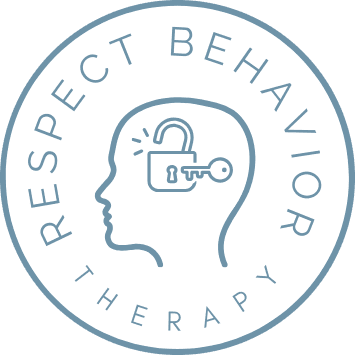The Difference between ABA Therapy and Psychology

Posted on March 20th, 2024.
In the realm of therapy and behavioral sciences, Applied Behavior Analysis (ABA Therapy) and Psychology are two terms that often get intertwined. While both aim to understand human behavior and improve lives, they have distinct differences that are worth exploring.
Understanding ABA Therapy
Applied Behavior Analysis (ABA Therapy) is a systematic approach to understanding and changing behavior. It focuses on analyzing the relationship between an individual's behavior and their environment.
ABA therapists utilize various techniques to modify behavior, including positive reinforcement, shaping, and prompting.
ABA Therapy is highly structured and goal-oriented, with interventions tailored to the individual's specific needs. It is commonly used to treat individuals with autism spectrum disorder (ASD) but can also be beneficial for those with other developmental disabilities or behavioral challenges.
Exploring Psychology
Psychology, on the other hand, is a broader field that encompasses the study of the mind and behavior. It explores various aspects of human behavior, including cognition, emotion, perception, and personality. Psychologists use different theories and methodologies to understand and address psychological issues.
Psychology encompasses a wide range of approaches, including clinical psychology, counseling psychology, and educational psychology. Psychologists may employ techniques such as talk therapy, cognitive-behavioral therapy (CBT), and psychoanalysis to help individuals overcome challenges and improve their mental well-being.
Key Differences between ABA Therapy and Psychology
- Focus: ABA Therapy primarily focuses on behavior modification, while psychology explores a broader range of psychological processes and phenomena.
- Methodology: ABA Therapy relies heavily on the principles of behaviorism and employs techniques such as reinforcement and shaping, whereas psychology utilizes diverse theoretical frameworks and therapeutic approaches.
- Target Population: ABA Therapy is often used with individuals with developmental disabilities, particularly autism, whereas psychology caters to a more diverse population, including those with mental health disorders, relationship issues, and developmental concerns.
The Intersection of ABA Therapy and Psychology
Despite their differences, ABA Therapy and psychology can intersect in various ways. For instance, psychologists may incorporate principles of ABA Therapy into their practice when working with individuals with behavioral challenges or developmental disabilities. Likewise, ABA therapists may draw upon psychological theories to better understand the underlying factors influencing behavior.
Collaboration between ABA therapists and psychologists can lead to more comprehensive and effective interventions, especially for individuals with complex needs. By combining their expertise, professionals from both fields can provide holistic support that addresses both behavioral and psychological aspects of a person's well-being.
Choosing the Right Approach
When seeking therapy or intervention services, it's essential to consider the specific needs and goals of the individual. For individuals with autism or related developmental disorders, ABA Therapy may be the most effective option, focusing on skill-building and behavior management. However, for those dealing with mental health issues or interpersonal difficulties, traditional psychology or counseling may be more appropriate.
ABA Interventions for Autism Spectrum Disorder (ASD)
ABA Interventions for Autism Spectrum Disorder (ASD) encompasses a range of strategies and techniques derived from Applied Behavior Analysis principles to address the unique needs and challenges of individuals on the autism spectrum. Here's a brief overview of some common ABA interventions for ASD:
- Functional Behavior Assessment (FBA): Before implementing interventions, ABA practitioners conduct FBAs to identify the function or purpose of the individual's behaviors. This helps tailor interventions to address specific behavioral needs.
- Discrete Trial Training (DTT): DTT involves breaking down complex skills into smaller, more manageable components and teaching them systematically through repeated trials, prompting, and reinforcement. It's often used to teach language, social, and academic skills.
- Natural Environment Teaching (NET): Unlike DTT, NET takes place in the natural environment and involves capitalizing on teachable moments during everyday activities. It focuses on promoting skills that are functional and relevant to the individual's daily life.
- Pivotal Response Training (PRT): PRT targets pivotal areas of development, such as motivation, self-initiation, and responsiveness to multiple cues. It emphasizes naturalistic teaching strategies, reinforcement of attempts, and increasing opportunities for child-led interactions.
- Incidental Teaching: This approach involves setting up situations where the child is likely to initiate a desired behavior, allowing for spontaneous learning opportunities. Practitioners use prompts and reinforcement to encourage and shape these behaviors.
- Visual Supports: ABA interventions often utilize visual supports, such as visual schedules, token boards, and social stories, to enhance understanding, communication, and predictability for individuals with ASD.
- Social Skills Training: ABA-based social skills interventions focus on teaching social understanding, communication, and interaction skills. Techniques may include role-playing, video modeling, and prompting to facilitate social engagement.
- Self-Management Strategies: ABA interventions teach individuals with ASD to independently regulate their behaviors, emotions, and tasks through self-monitoring, self-reinforcement, and self-correction techniques.
- Parent Training: A crucial aspect of ABA interventions for ASD involves training parents and caregivers in ABA principles and techniques. This empowers them to implement strategies consistently across different environments and promote generalization of skills.
- Generalization and Maintenance: ABA practitioners emphasize the importance of generalizing newly acquired skills across settings, people, and contexts. Maintenance strategies ensure that learned behaviors are retained over time and continue to be reinforced.
These ABA interventions for ASD are often implemented in collaboration with multidisciplinary teams, including behavior analysts, educators, therapists, and parents, to provide comprehensive support and maximize outcomes for individuals on the autism spectrum.
To learn more, read Understanding ABA Therapy: Effective Autism Treatment for Children.
Reach out
In conclusion, while Applied Behavior Analysis (ABA Therapy) and Psychology share common goals of understanding and improving human behavior, they differ in focus, methodology, and target population. By recognizing these differences, individuals can make informed decisions about the type of intervention that best suits their needs.
If you're interested in learning more about ABA Therapy or seeking services for yourself or a loved one, don't hesitate to reach out to us at Respect Behavior Therapy. You can contact us at (943) 200-0016 or via email at [email protected]. We're here to suppo rt you on your journey to behavioral health and well-being.
